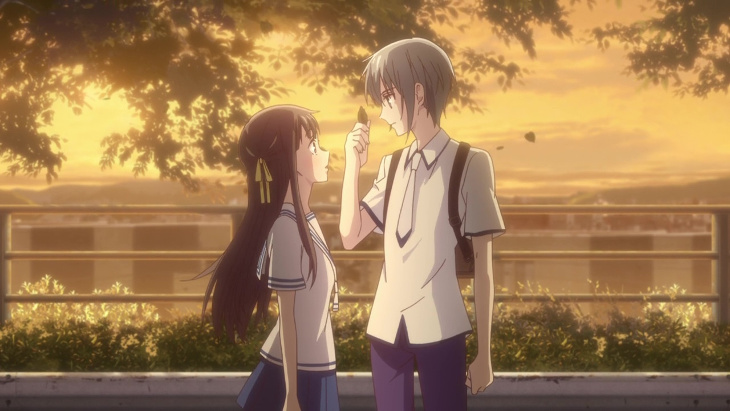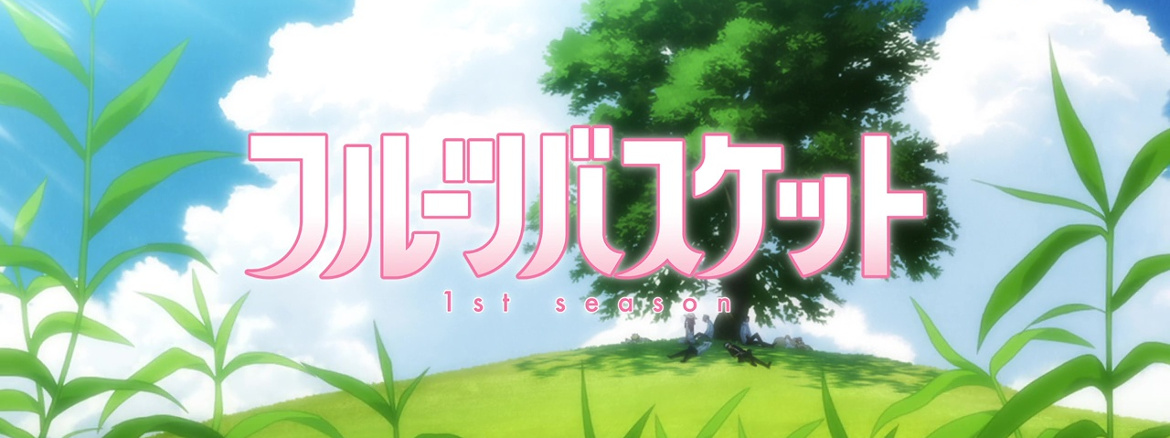
“Once upon a time, God told the animals, “I invite you to the banquet that I shall hold tomorrow.”
Fruits Basket holds an odd place for me when it comes to anime and manga. The manga was one of the first shojo titles I ever read, and for good reasons it remains a beloved entry in that demographic genre for both me and others. Historically, I’ve looked back on the 2001 anime as something of a missed opportunity. From what I have heard over the years, the anime was largely greenlit to reinvigorate interest after the still young manga was forced to take a hiatus as the mangaka, Takaya Natsuki, recovered from surgery on her dominant arm. Takaya was evidently unpleased with many aspects of the adaptation, and I’d argue Studio Deen’s series aged less gracefully than its source material. But now it’s back, almost 20 years since the previous adaptation dropped the curtains on its clumsily concluded story (The manga was only about a quarter of the way through its narrative in ‘01), and there are many questions to be asked and answered. Will this title be more in keeping with Takaya Natsuki’s original vision? Can it update the material without losing sight of the story’s distinctive tone? Will the comedy click with the newly muted visuals and the darker undercurrents of the series? The answers to most of the questions will probably take a while to nail down, but I’m glad to say that, even with the streamlined and modernized visuals, this new retelling effortlessly captured the atmosphere of the original. Nostalgia can be a tricky thing to pin down, but it is nice to see that this new adaptation is just as enjoyable as I could have hoped. So far, it looks like Fruits Basket (2019) will be an enjoyable series for fans of the original manga, fans of the 2001 anime and prospective fans looking for a jumping on point alike.

For those unfamiliar with the premise, Fruits Basket follows Honda Tohru, a recently orphaned high school student whose extended family has taken the March Comes in Like a Lion and Bunny Drop approach of viewing her as more trouble than she’s worth, and tell her to stay with friends while her grandfather’s house is being renovated. Not wanting to impose and viewing her current predicament as an opportunity to develop independence, Tohru decides to camp in the nearby woods during that period and save up money. However, she soon learns she is staying on land belonging to the family of one of her classmates, Sohma Yuki, an aloof class idol with a bizarre secret tied to the zodiac. The wackier aspects of this premise are largely preserved, but are handled in such a way that they aren’t excessive or abrasive. Tohru still has a cartoonish sense of industriousness, but the series is willing to mine that for humor to moderate success. The jokes in this first episode were all in the original manga, but I have to applaud the delivery and execution. In terms of both comedy and drama, this adaptation takes elements that could have come across as dated or stilted and makes them hit with as much humor and pathos as they did two decades ago, or, in some instances, makes them hit even harder.

On the production side, Fruits Basket (2019) really surprised me. The early screenshots had me worried since the original manga favored the exaggerated anime eyes that one would see in a series like Sailor Moon, and I was concerned that by modernizing the character models they would lose some of the qualities that made the series distinctive. It only took a few seconds to get accustomed to the new character designs though, and they mesh well with the picturesque scenery. The episode is beautiful throughout. Fruits Basket was never a series to go to for visual spectacle, but that doesn’t stop TMS Entertainment from constructing some notably solid imagery. The only notable complaint that I have is with the smoke that appears when members of the Sohma family transform. TMS employed a computer generated effect that doesn’t mesh particularly well with the rest of the animation. It doesn’t look terrible, particularly in stills, but it’s distracting. Given that the ‘transformations’ were never particularly serious, and were more often used as a comedic punchline to a bit of slapstick, it’s a little strange that the production team didn’t just go for a more traditional and comedic cloud effect.
Before I wrap up, a few Notes and Nitpicks:
- The first omnibus volume of Fruits Basket is one of the few entries that I still have in my manga collection (Most were lost to flooding in the mid-2000’s). On multiple occasions during this first episode, I found myself pausing the episode so that I could leaf through the pages and check to see if a joke or bit of foreshadowing actually appeared in the first chapter or if it had been added in adaptation. That hat was in the first chapter!
- It may not be evident why I reference March Comes in Like a Lion or Bunny Drop when referencing Tohru’s family given that the grandfather just comes across a well-meaning but doddering. Trust me. He isn’t the family member I had in mind when I referenced those titles.
- The inclusion of “First Season” on the show’s title card looks like a solid confirmation that we won’t be getting the full narrative in a single push.
- From what I’ve read Takaya Natsuki is taking a more hands on approach with this new series, so I hope she is more satisfied with the end result, this time. She famously/infamously wouldn’t allow any studio near the work for years after her falling out with Studio Deen.




Add comment